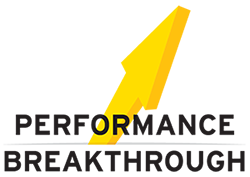The secret of rulership is to combine a belief in one’s own infallibility with the power to learn from past mistakes. ~ George Orwell
As much as we’d like to believe that we’re rational human beings, we can all too easily mislead ourselves. Self-deception is a process that encourages us to justify our false and invalid beliefs.
Individuals, organizations and communities experience self-deception — the root of most problems, according to the Arbinger Institute, a Utah-based consulting firm. It’s human nature to blame others, externalize causes and deny our role in organizational struggles. This tendency is so pervasive that few of us escape its reach, and self-deception intrudes into every aspect of our lives. Nowhere is it more destructive than at the top of the leadership food chain.
You’ll find that self-deception:
- Obscures the truth about yourself
- Corrupts your view of others and your circumstances
- Destroys your credibility and the trust others have in you
- Inhibits your ability to persuade others
- Thwarts wise decision-making
Fortunately, recognizing this leadership trap can inoculate you against its consequences. If, however, you believe that guarding yourself against wishful thinking will prevent self-deception, you may be in for a bumpy ride. Ongoing vigilance is required to preserve immunity, note Arbinger’s experts in Leadership and Self-Deception. Awareness will:
- Sharpen your vision
- Reduce feelings of conflict
- Enliven the desire for teamwork
- Redouble accountability
- Enhance your ability to achieve results
- Boost job satisfaction and overall happiness
Are You “In” or “Out” of the Box?
Leadership and Self-Deception features an entertaining story about an executive who is facing challenges at work and home. His exploits expose the psychological processes that conceal our true motivations and intentions from us and trap us in a “box” of endless self-justification. Most importantly, the book shows us the way out.
When you’re “in the box,” you are speaking with your interests and goals in mind. Through the lens of self-justification, you’ll find external factors and other people to blame. You’ll deny responsibility for problems and fail to identify your part in perpetuating them. In your interactions, you’ll try to change other people and convince them to do what you would do.
When you’re “out of the box,” there’s room for openness, authenticity, and interest in and empathy for other people. You’ll seek the true basis for problems, including your own participation. You’ll be less interested in assigning blame or judgment, or being locked into unproductive battles.
Confidence Games
One of the most documented findings in psychology is the average person’s ability to believe extremely flattering things about himself. We generally think that we possess a host of socially desirable traits and that we’re free of the most unattractive ones.
Most people deem themselves to be:
- More intelligent than others
- More fair-minded
- Less prejudiced
- Better drivers
While confidence and a fair view of one’s capabilities and strengths are essential, overconfidence and an elevated sense of worth lead to fragile relationships. When we focus on proving ourselves, we spend far too much time on defending and justifying our behavior. We cut ourselves off from opportunities to understand our colleagues. Our ego prevents us from communicating an interest in others. In other words, we lack empathy.
The vast majority of people attribute their successes to themselves and their failures to external circumstances. This self-serving bias is a feeble attempt to positively reinforce our sense of worthiness and self-esteem.
Our preferred perceptions lead us to test hypotheses that are slanted toward our chosen direction. By consulting the “right” people, we increase our chances of hearing what we want to hear.
We’re not consciously distorting information, but we have considerable opportunities to jiggle various criteria and arrive at conclusions that favor our biases.
Managerial Self-Deception
Try telling a colleague or subordinate that he has a problem, and the depth of his self-deception will become clear.
Helping others see what they’re unwilling to recognize is a widespread leadership challenge. It’s especially tricky when we observe it in others, yet are unable to acknowledge it in ourselves.
In business psychology, the prevailing wisdom has assumed that a high degree of self-confidence leads to promotions and leadership success. New studies, however, prove otherwise, writes business psychologist Tomas Chamorro-Premuzic in Less-Confident People Are More Successful (Harvard Business Review blog, July 2012).
A moderately low level of self-confidence is more likely to make you successful, Dr. Chamorro-Premuzic asserts. Don’t confuse this with a very low degree of self-confidence. Excessive fear, anxiety and stress will inhibit performance, impede decision-making and undermine interpersonal relationships.
But low-enough self-confidence can work in your favor because it:
- Makes you pay attention to negative feedback and be self-critical. This means you’re open to learning and improving. Most of us tend to listen to feedback and ignore the negative in favor of the positive. If you want to overcome deficits, you must listen to both positive and negative comments.
- Motivates you to work harder and prepare more effectively. If you really want to achieve leadership success, you will do whatever it takes to bridge the gap between the status quo and your professional goals.
- Reduces your chances of coming across as arrogant or delusional. People with lower levels of self-confidence are more likely to admit their mistakes instead of blaming others — and they rarely take credit for others’ accomplishments.
If you’re serious about becoming a strong leader, lower self-confidence can serve as a strong ally, inspiring you to work hard, conquer limitations and, put simply, avoid being a jerk.
Inspired Leadership
When you’re courageous enough to question your own behavior and motives, you model the behaviors you wish to see in others.
Help yourself and your staff by:
- Reading Arbinger’s Leadership and Self-Deception.
- Working with an executive coach to pinpoint areas of self-deception.
- Asking yourself, “What’s my part in any given problem?”
- Identifying ways to set aside your ego and achieve optimum results.


